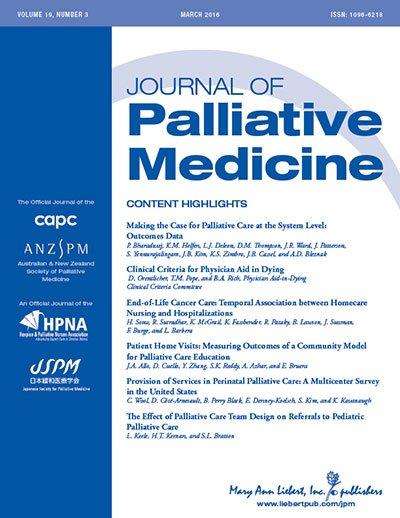Credit: Mary Ann Liebert, Inc., publishers
Opioids are very effective for treating some types of pain, such as cancer pain and postoperative pain, but not for other kinds of pain like chronic low back pain. An increase in the number of opioid-related deaths among addicts has led to the current movement to restrict opioid prescribing by state and federal authorities. While a laudable goal, these restrictions threaten to block their use for safe and effective pain relief when medically indicated. A new Editorial, "The Pendulum Swings for Opioid Prescribing", calls for physicians to speak out as a voice of reason in their communities, and is published in Journal of Palliative Medicine.
In the Editorial, Charles F. von Gunten, MD, PhD, Editor-in-Chief of Journal of Palliative Medicine and Vice President, Medical Affairs, Hospice and Palliative Medicine for the OhioHealth system, describes the shifting attitudes toward opioid prescribing he has witnessed during his nearly 30 years as a physician. Although the number of deaths from opioid addiction is rising, it is incorrect to draw the conclusion that the appropriate prescribing of opioids causes addiction in otherwise normal individuals, states Dr. von Gunten. He emphasizes the need for proper assessment of pain and, when indicated, appropriate prescribing and access to opioid drugs.
"There needs to be balance. At the same time we assure there isn't an excess supply of prescription opioids in medicine cabinets to be diverted by others, we must assure an adequate dose and supply for patients whose quality of life and function is improved," says Dr. von Gunten.
Journal of Palliative Medicine is the official journal of the Center to Advance Palliative Care (CAPC) and an official journal of the Hospice and Palliative Nurses Association.
More information: Charles F. von Gunten. The Pendulum Swings for Opioid Prescribing, Journal of Palliative Medicine (2016). DOI: 10.1089/jpm.2016.0079
Journal information: Journal of Palliative Medicine
Provided by Mary Ann Liebert, Inc



















